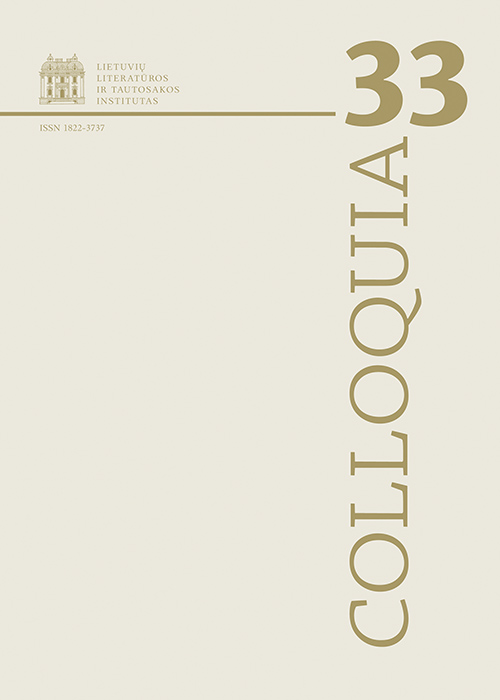„Šnekumas nebūna be nuodėmės“: dviprasmiški tiesos liudijimai Kosto Ostrausko dramoje Eloiza ir Abelardas
Santrauka
Straipsnyje aptariami Kosto Ostrausko dramos Eloiza ir Abelardas: Historia calamitatum (par. 1984–1985, išsp. 1988) istoriniai kontekstai ir intertekstai. Išryškinami epistolinio, scholastinio (mokslinio), hagiografinio, kurtuazinio, feministinio diskursų elementai, kurie panaudoti kuriant dramos dialogą, veiksmą, konfliktą, personažus, formuojant problematiką ir motyvus. Didžiausias dėmesys skiriamas XII a. pirmosios pusės filosofijos ir teologijos naujovėms dialektikai ir logikai, kurios istorinį dramos prototipą Abeliarą susieja su paties Ostrausko draminio mąstymo tipu, diskusiniu, intelektualiuoju jo kūrybos pradu. Ostrausko Eloizos ir Abelardo analizė patvirtina dviprasmišką parodijos kuriamą santykį su kultūros tekstais: jie redukuojami, pajuokiami, bet kartu ir pratęsiami, pritaikomi keliant filosofinį tiesos klausimą, atveriant jos sacrum ir profanum aspektus, racionalaus ir jausminio pažinimo būdus, įrodant jų visų nepajėgumą liudyti tiesą.
Atsisiuntimai
Skaitomiausi šio autoriaus(ų) straipsniai
- Reda Pabarčienė, Moterų apgyvendintas istorijos pasakojimas , Colloquia: T 54 (2024): Colloquia
- Reda Pabarčienė, Tekstologijos galimybės tiriant Balio Sruogos Dievų mišką , Colloquia: T 36 (2016)
